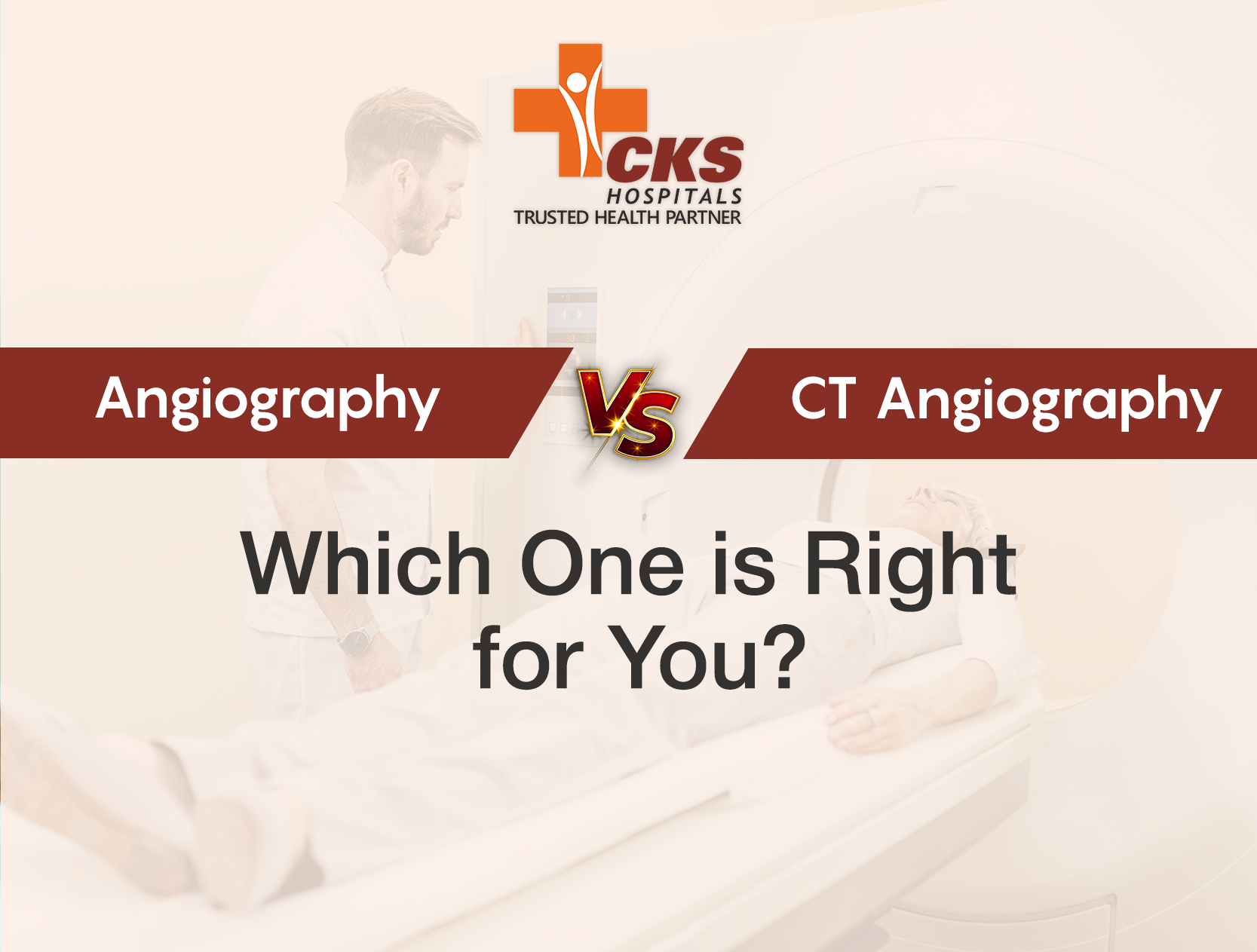Difference Between Heart Attack and Heart Failure that You Must Know
Introduction
A heart attack and heart failure are separate but related illnesses that can affect the heart. A heart attack occurs when the blood supply to a section of the heart muscle is interrupted, resulting in tissue damage.
On the other hand, heart failure is a chronic condition in which the heart’s ability to pump blood throughout the body is impaired. This is typically the result of past heart damage, excessive blood pressure, or some other underlying issue.
To effectively avoid and manage these illnesses, it is essential to have a solid understanding of the Difference Between Heart Attack and Heart Failure. In this article, We’ll talk about how heart attacks and heart failure differ along with symptoms, causes, and treatments.
Understanding the Meaning of a Heart Attack
A heart attack happens when blood flow to a region of the heart is drastically decreased or obstructed, which results in the damage or death of heart muscle cells. This can cause angina (chest pain) or other symptoms. Most cases are due to a clot in the blood that blocks a coronary artery, which is the blood vessel that delivers blood to the heart.
Heart attacks may happen suddenly and without prior warning.
Understanding the Meaning of Heart Failure
Heart failure is a chronic medical ailment characterized by the heart’s inability to pump blood efficiently enough to fulfill the body’s needs. This leaves the body unable to receive the required oxygen and nutrients. Various underlying illnesses, such as coronary artery disease, high blood pressure, or problems with the heart valves, can bring it on.
A Quick Difference Between Heart Attack and Heart Failure
| Aspect | Heart Attack | Heart Failure |
| Definition | The blood supply to a portion of the heart is cut off, which can lead to injury or the death of cells. | The inability of the heart to effectively pump blood in order to meet the requirements of the body. |
| Cause | A clot of blood or the accumulation of plaque can cause a coronary artery to become blocked. | Conditions such as coronary artery disease, excessive blood pressure, or heart valve issues can be considered underlying causes. |
| Symptoms | Pain or discomfort in the chest, shortness of breath, nausea, and lightheadedness are all symptoms. | Symptoms include lethargy, swelling (edema), difficulty breathing, a persistent cough, and weight gain. |
| Duration | Acute onset; symptoms may appear suddenly and without any prior warning. | A chronic condition is one that comes on gradually and continues for an extended period of time. |
| Treatment | It is absolutely necessary to get immediate medical assistance; potential treatments include angioplasty, medication, or surgery. | Long-term treatment may include alterations to one’s way of life, the use of medications, and, in more severe circumstances, the implantation of devices or the transplanting of organs. |
| Prognosis | Prompt treatment can limit the damage done to the heart; recovery times vary depending on the severity of the condition. | There is currently no treatment that will reverse the disease; instead, doctors focus on relieving symptoms, enhancing patients’ quality of life, and avoiding consequences. |
From the above differences, you have an understanding of both terms. A heart specialist doctor provided some information about the symptoms, causes, and treatment that you can keep in mind and work on these conditions.
Symptoms of Heart Attack
- ● Pain or discomfort in the chest – could feel like pressure, fullness, or squeezing in the middle of the chest.
- ● Pain in the Upper Body – either in the arm, the back, the neck, the jaw, the stomach, or in the upper back.
- ● Breathlessness – can come on quickly and be quite severe.
- ● Excessive sweating, often known as “breaking out in a cold sweat.
- ● Suddenly experiencing lightheadedness or dizziness.
- ● Unusual weariness or a lack of energy, particularly when accompanied by one or more other symptoms.
- Also, Read – Everything To Know About “Silent Heart Attack”
Symptoms of Heart Failure
- ● Chronic tiredness and weakness, especially when engaging in physical activity.
- ● Shortness of breath.
- ● Edema affects the feet, ankles, and legs, occasionally in the abdominal region.
- ● Palpitations – with a rapid or irregular heartbeat.
- ● Blood-tinged sputum that is either white or pink.
- ● A rapid increase in body mass.
- ● The inability to perform physically demanding activities.
- ● Confusion or a decline in one’s ability to think.
Causes of Heart Attack
- ● Coronary Artery Disease (CAD) is a disorder that causes coronary arteries (the blood vessels that carry oxygen-rich blood to the heart muscle) to become narrowed or obstructed by a buildup of fatty deposits called plaque. CAD is the leading cause of heart attacks.
- ● Atherosclerosis can eventually lead to plaque production. When the plaque breaks, it has the potential to start a blood clot, which might ultimately block a coronary artery.
- ● Blood clots can form in the coronary arteries, which will then impede the flow of blood.
- ● An abrupt spasm or contraction of a coronary artery can temporarily reduce or even totally cease the blood flow to a portion of the heart.
- ● Artery dissection is a condition that happens when the inner layers of a coronary artery split, causing a decrease in the flow of blood through the artery.
- ● A blood clot or other debris forms in one of the blood vessels and then travels through the bloodstream until it becomes lodged in one of the coronary arteries. This condition is known as a coronary embolism.
Causes of Heart Failure
- ● Coronary artery disease (CAD) is when the coronary arteries get blocked for an extended period, which can cause the heart muscle to become weakened.
- ● Hypertension, often known as high blood pressure, is a condition in which the patient’s blood pressure is consistently elevated, causing the heart to work harder than it should, which can cause the organ to grow and become less potent.
- ● Heart valve disorders include conditions such as aortic stenosis and mitral regurgitation, which can reduce the effectiveness of the heart’s pumping action.
- ● Cardiomyopathy is a term used to describe disorders that affect the heart’s muscles and can either be inherited or acquired.
- ● Several heart structure issues might compromise a person’s capacity to pump blood effectively.
- ● Irregular cardiac rhythms, known as arrhythmias if not effectively treated can result in heart failure.
- ● Chronic obstructive pulmonary disease (often known as COPD) can stress the heart more.
- ● Diabetes that is not well treated can lead to heart disease, one of the leading causes of heart failure.
Treatments of Heart Attack
Medication: Medication for Emergencies Medication such as aspirin, which helps to prevent blood clots from forming, is frequently given to patients as soon as it is suspected that they are having a heart attack.
Thrombolytic Therapy: These treatments, also called clot-busting therapies, are administered to break blood clots clogging the coronary arteries.
Angioplasty: This treatment includes inflating a tiny balloon inside an artery that has been constricted to expand the vessel.
Bypass surgery: Also known as coronary artery bypass grafting (CABG), it is an option for patients with several blocked arteries.
Modifications to Lifestyle: One must practice eating a balanced diet, engaging in regular exercise, giving up smoking, and learning how to manage stress effectively, which is essential for a full and speedy recovery.
Treatments of Heart Failure
Medication: A doctor recommends certain medications to improve heart function, control blood pressure, and manage symptoms.
Changing Your Lifestyle: It includes eating a diet low in sodium, staying active regularly, and decreasing the amount of alcohol you drink.
Implanted Devices: Implantable devices such as pacemakers and implanted cardioverter-defibrillators (ICDs) may control the heart’s rhythm and prevent sudden cardiac arrest.
Biventricular pacemaker: It is a particular type of pacemaker that, in some cases of heart failure, can enhance the coordination of the contractions in each of the heart’s chambers.
Cardiac Resynchronization Therapy: CRT is a treatment that includes implanting a unique pacemaker into the patient’s chest to enhance the coordination of the patient’s heartbeats.
Repair or Replacement of the Heart Valve: If a defective heart valve contributes to heart failure. The valve may require surgical repair or replacement.
Transplantation of the Heart: If alternative treatments have been tried for severe cases of heart failure but have not succeeded, heart transplantation may be considered.
Ventricular Assist Devices: VADs are mechanical devices that help people with severe heart failure pump blood while waiting for a heart transplant or as a therapy option for the long term.
What can you do to improve your heart health?
Once you get clear with the difference between heart attack and heart failure this time improve your heart health. You should get regular exercise, keep a balanced diet that is abundant in fruits, vegetables, and whole grains, and limit your intake of salt and sugar. Give up smoking, drink alcohol in moderation, and manage stress through relaxation techniques. Get regular checkups from the best heart hospital in Jaipur to monitor your blood pressure, cholesterol, and overall heart function.
Conclusion
In conclusion, although both heart attacks and heart failure are dangerous cardiac disorders., A heart attack is an unexpected event that directly results from obstructed blood flow. In contrast, there is a clear difference between a heart attack and heart failure. Both disorders must be recognized quickly and treated with the proper medical care to be effectively managed.
FAQs for the Difference Between Heart Attack and Heart Failure
The onset of heart failure typically occurs over time and can be caused by several circumstances, including excessive blood pressure or past injury to the heart. On the other hand, a heart attack is typically an unexpected occurrence brought on by a clogged artery.
Both conditions are life-threatening, but a heart attack is typically seen as the more urgent threat to one’s life. Heart failure is a chronic illness that, if well controlled, has the potential to have a more favorable prognosis in the long run.
Yes, having heart failure can put a person at risk of having a heart attack. It may be difficult for the weakening heart in heart failure to pump blood adequately. Increasing the risk of a heart attack due to decreased blood flow.
High blood pressure is a common symptom of heart failure. The body strives to compensate for the heart’s diminished pumping power by elevating blood pressure. On the other hand, it tends to decrease over time, particularly in cases of severe heart failure.
The severity of heart failure, the underlying causes of the condition, and how well it is handled all play a role in how long a person with heart failure can expect to live. Many people with heart failure can live long, healthy lives if they receive the appropriate medical care and make necessary changes to their way of life.
Recent Posts
- All Posts
- Blog

Read More
Our Speciality
- Cardiology & Cardiac Surgery
- Neurosurgery
- Orthopedics & Joint Replacement
- Urology
- Gastroenterology
- Nephrology & Dialysis
- Bariatric & Metabolic Surgery
- ENT & Head Face Neck Surgery
- Internal Medicine & Critical Care
Explore More
Our Doctors

Dr Prakash Chandwani
(Chief Managing Director) Director & Head Dept of Cardiology

Dr Mahesh Goyal
Director & Head Dept of Allergy Specialist, Asthma & Sleep

Dr Mohammed Sharif
CEO & Global Operations

Dr Ghanshyam Agrawal
Consultant Dept of Neuro Surgeon

Dr Sumit Kamble
Consultant Dept of Neurology
See All Doctors

